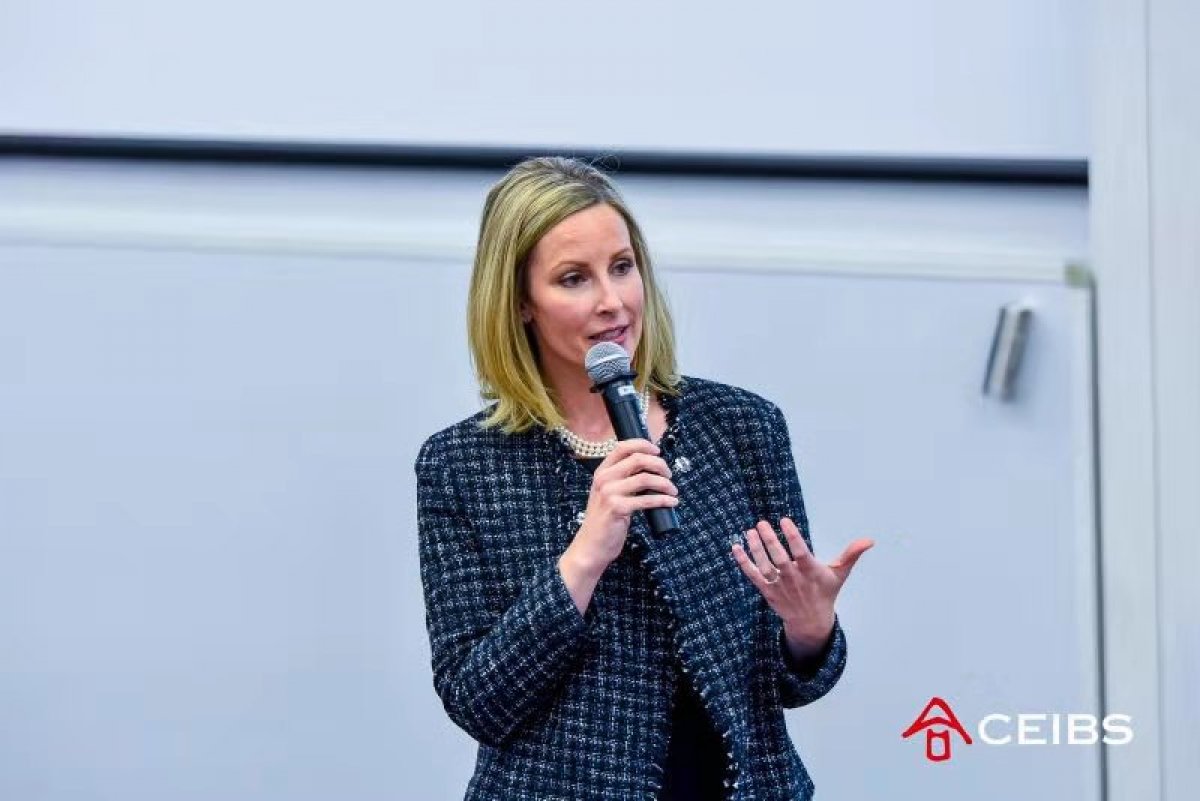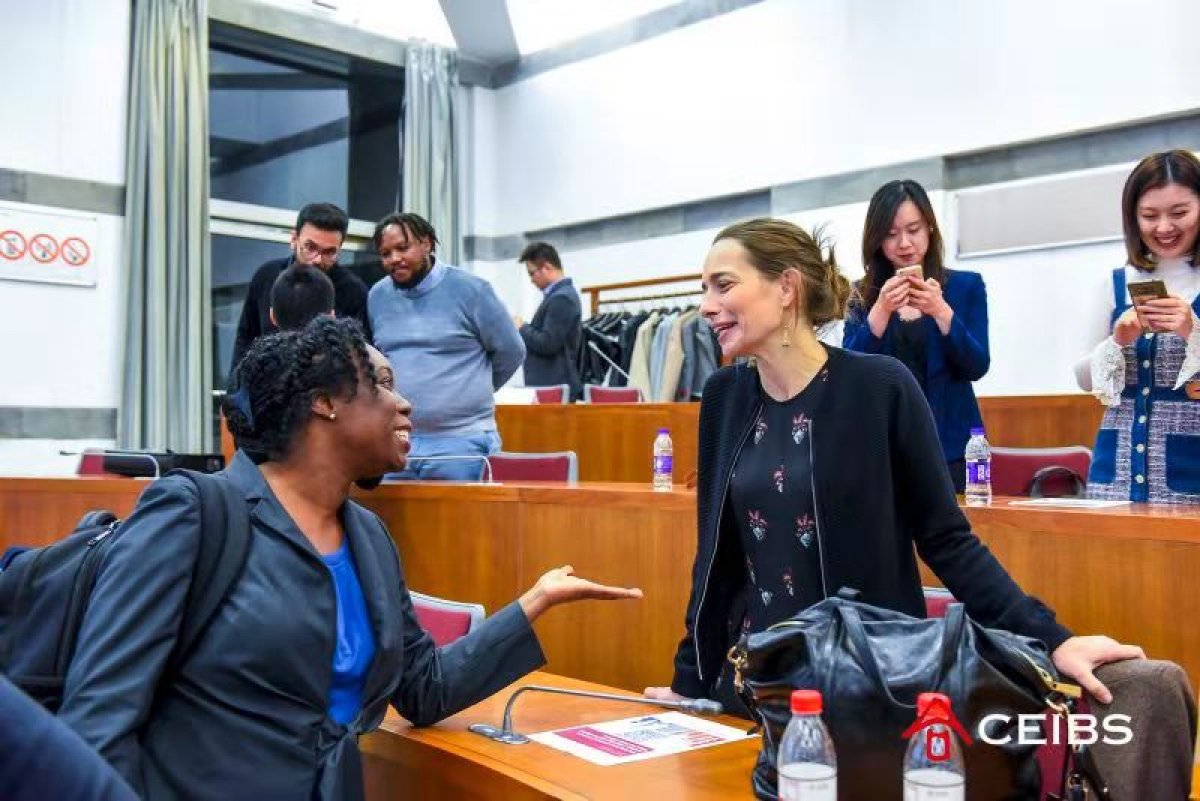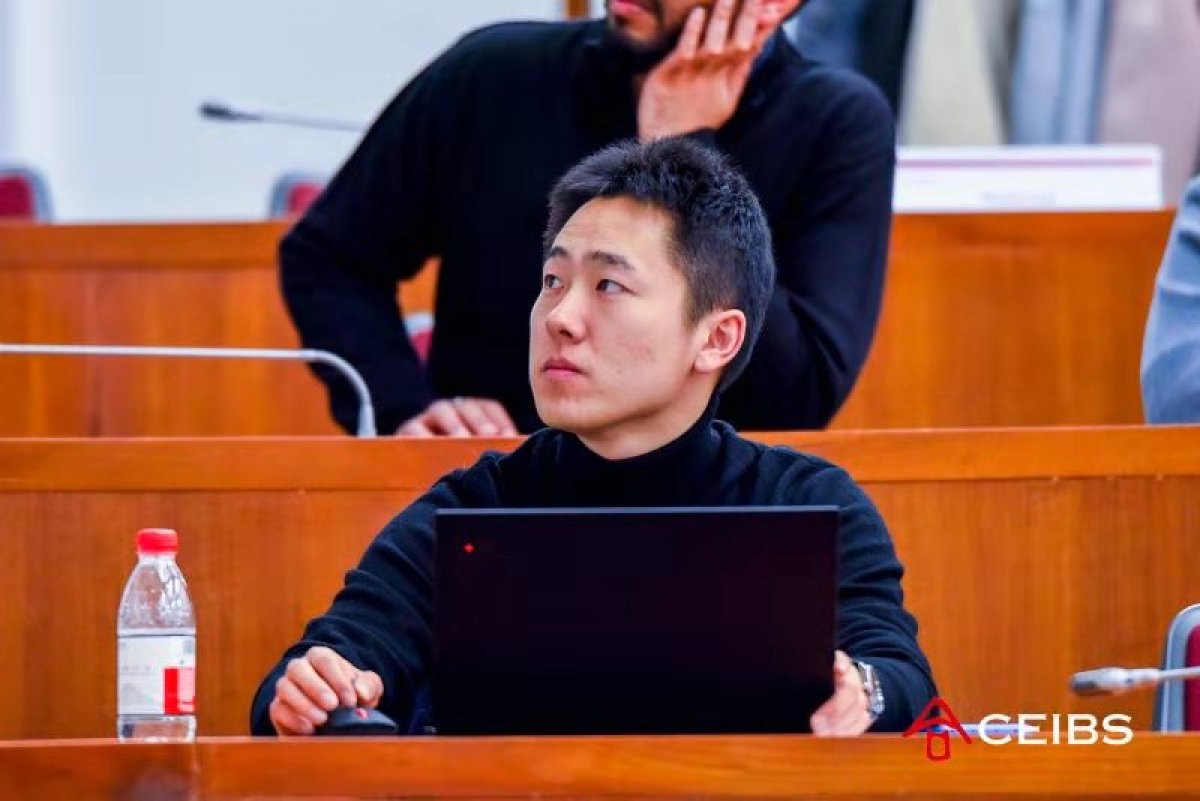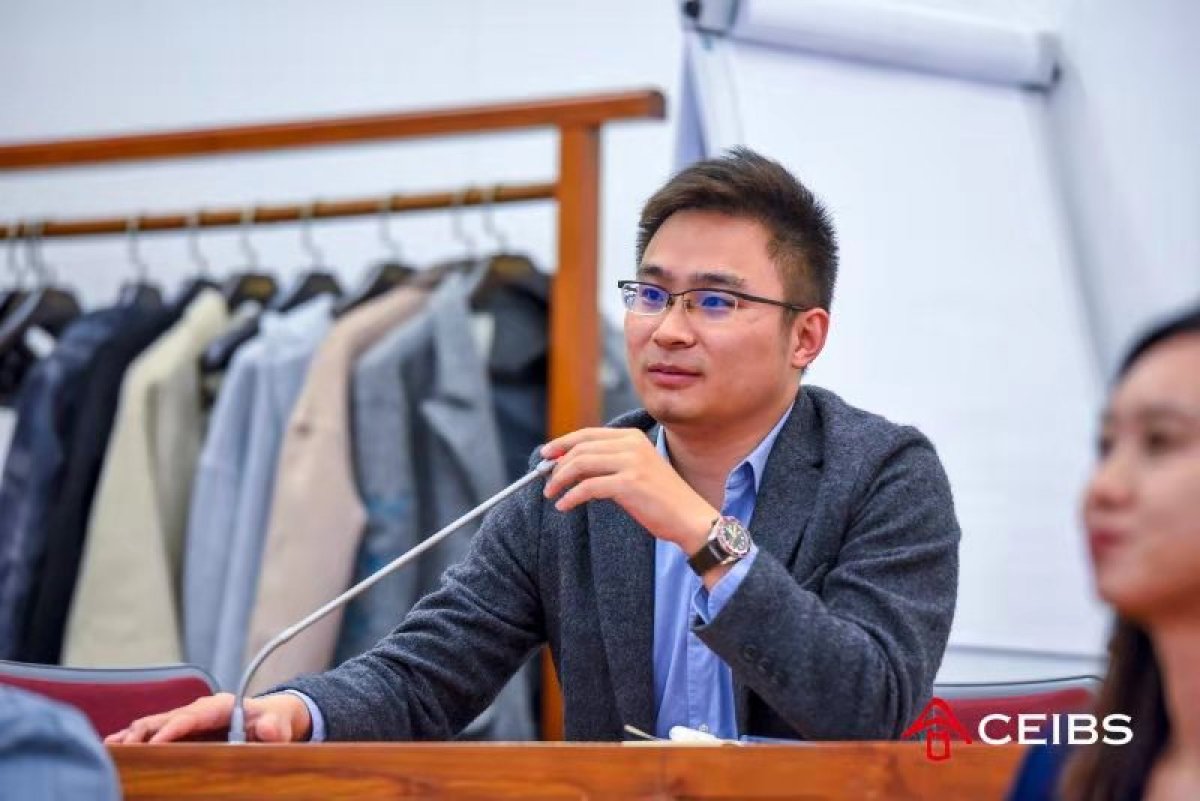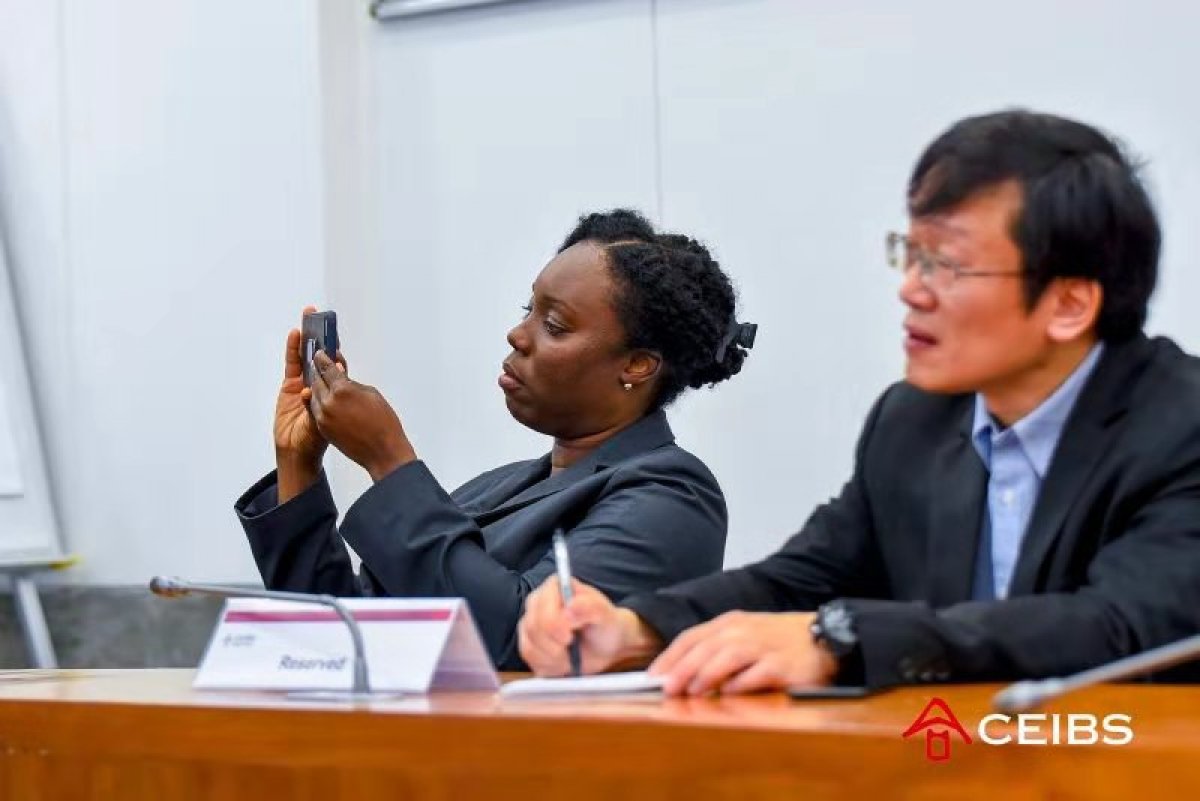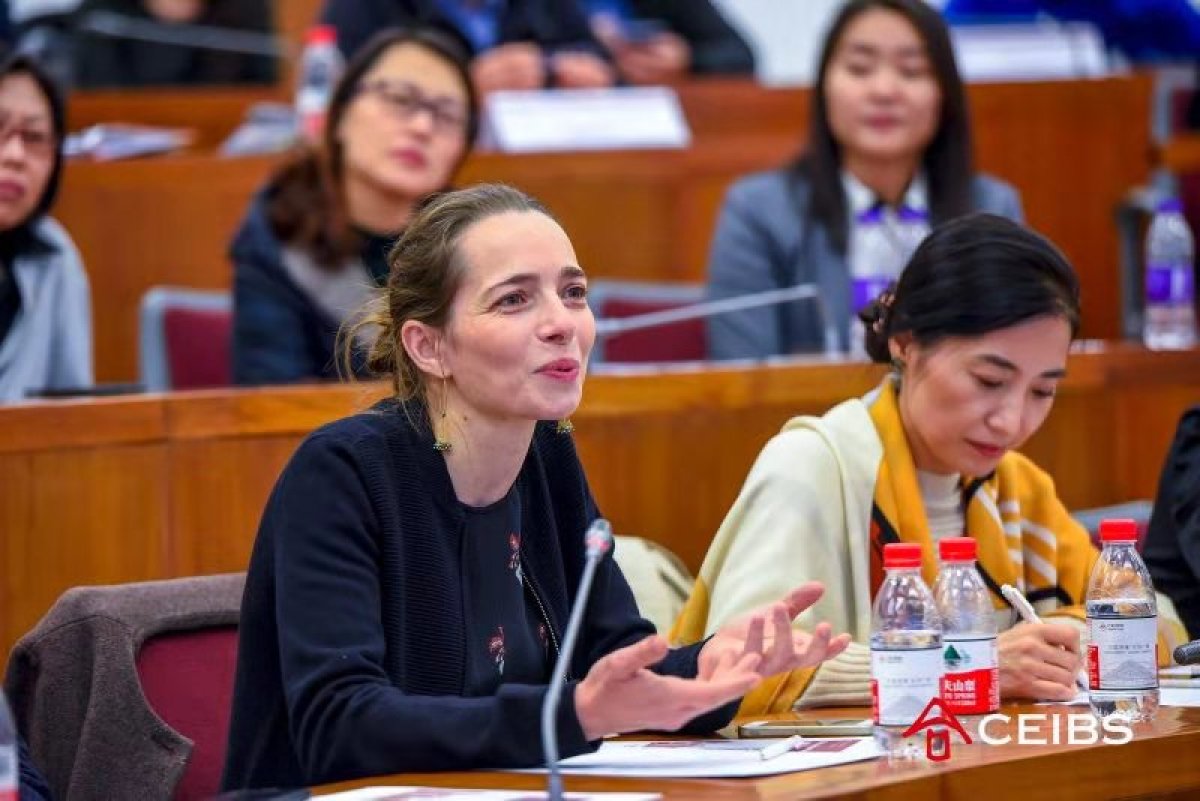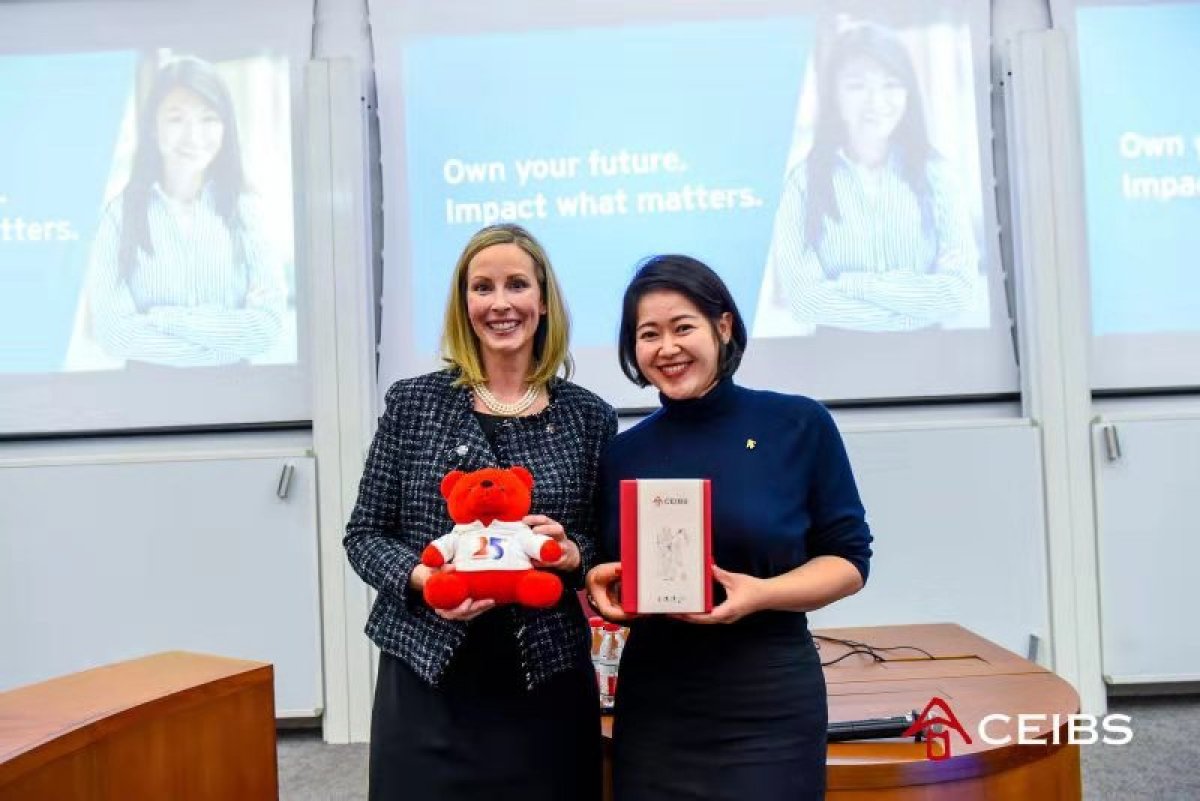CEIBS Executive Forum: Smart Employers Recognise Talent Has Choices
November 21, 2019. Shanghai – Focusing on satisfying employee demands towards their employers, and not the other way around, is the foundation of talent retention, a human resources expert said during a speech as part of a CEIBS Executive Forum this evening.
During the event, Ms. Anne Gotte, Senior Vice President, Global Talent at Ecolab delivered a lecture entitled The Employment Brand Promise Journey: Inspiring and Developing Talent for Future Impact at CEIBS Shanghai campus in front of an audience of students, alumni and guests.
Ecolab, a Fortune 200 global leader in water, hygiene and energy technologies and services, is putting talent at the centre of long term development plans, said Ms. Gotte.
She explained China was a “mega-market” which combines attributes of both developed and developing country environments. “North America and Europe have stable growth, but not as much potential as mega markets,” said Ms. Gotte, adding, “meanwhile, non-mega markets are emerging where a more entrepreneurial approach is necessary."
China offers the size, scale and potential for a mega-market, but also requires adaptability, agility and responsiveness which smaller markets also require, she added, explaining that the nature of the Chinese market meant it represented not only a business opportunity, but also the chance to “unlock significant growth” inside the organisation due to the unique challenges it presented.
Such challenges help bring about unique solutions which typically don’t emerge in more developed markets, she explained. These solutions offer many knock-on benefits for the entire firm globally from a personnel standpoint, Ms. Gotte said.
“In an organisation like ours we are incredibly human-centric – solutions are brought to every customer at 3 million locations worldwide each day, so that uniqueness really rests in how we develop, how we acquire, how we retain, how we motivate and how we differentiate our talent,” she said.
A need to be able to identify what talent actually looks like in a modern, diverse and globalised workplace has emerged in recent years she said, as the rapidly shrinking globe makes existing definitions of what constitutes a capable employee somewhat outdated.
“As our business continues to change we are also seeing that our requirements for talents are now different, we really need to understand them, figure them out, measure them, know what they look like when we see them, and to work out how to attract people of this standard,” explained Ms. Gotte.
Having the mental agility to think of things in new ways, and not be constrained by traditional limits in thinking, is a key attribute for Ecolab’s workforce, she explained. Ms. Gotte gave the examples of Didi being a transport company which has no cars, of Skype owning no telecom infrastructure and of AirBnb owning no property.
“Imagine if you will, of telling someone at one of the traditional companies 20 years ago that the person who disrupts you, the company who puts you out of business, is not going to own any property or [in Skype’s case] isn’t going to have any telecom infrastructure – they wouldn't believe you,” she said.
Ms. Gotte said there was a great need for people who can see such disruption to help solve problems for companies and for customers, adding that much of the companies search for talent revolved around how to find people with this potential in the millennial generation.
She quoted research indicating that millennials seek multiple experiences with multiple employers throughout their career, something which has led some employers not to invest as much in their staff as before.
“A few years ago it was ‘Hey, just forget it, they are only going to stay for 2-3 years if you are lucky, and then they are going to quit – there is nothing you can do about it’, well we thought that was terrible so we spent some thinking about what that might mean for us,” she said.
She added, “What we learned is that our millennials, because of our diversity, size and purpose, find us irresistible and they are happy to stay as long as they have experiences they value with us.”
“We found that millennials crave a sense of purpose and belonging. Well of course they would, these needs are almost as old as humanity itself,” she said. “And, we recognise that as we expect a lot from our employees, it’s ok for them to expect a lot from us.”
The key to employee satisfaction she said, was creating a sense of purpose and making people feel proud to belong to the firm – yet in Ecolab’s case, this is not easy as the company has a complex business model mostly invisible to the average person on a daily basis. Therefore the firm makes a point of making their mission easy and simple in terms of describing what it delivers to customers.
Another key issue is ethnics and integrity – something else valued by millennials, Ms. Gotte said.
“The idea of mutual responsibility and mutual respect, reciprocity, is a really important element to our employment brand,” she said, adding, “We want to signal that it’s not about just getting results at any cost.”
Ms. Gotte also presented the three key components of Ecolab’s talent strategy – developing a compelling employment brand, providing robust career experiences and ongoing learning, and being a diverse and inclusive workplace.
Ultimately, Ecolab recognises that real talent has choices and it is important to recognise this in order to attract it. “Companies need to realise that people have choices from the first day with the company, and keep on having them for the rest of their time there,” she said.
For details on other upcoming CEIBS events, please visit our events page here.







